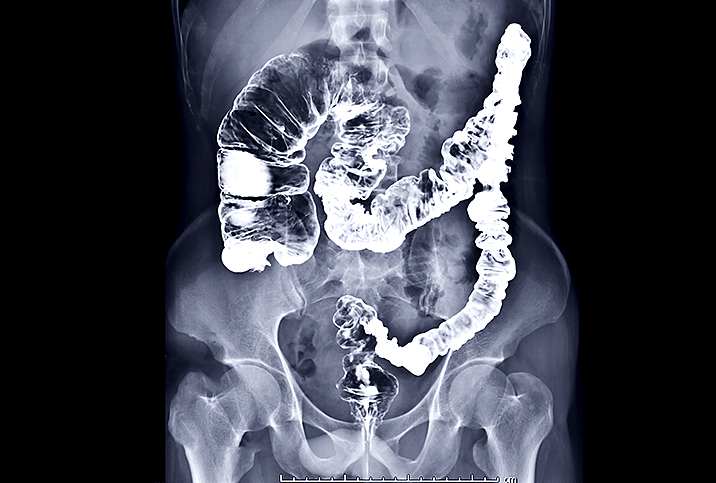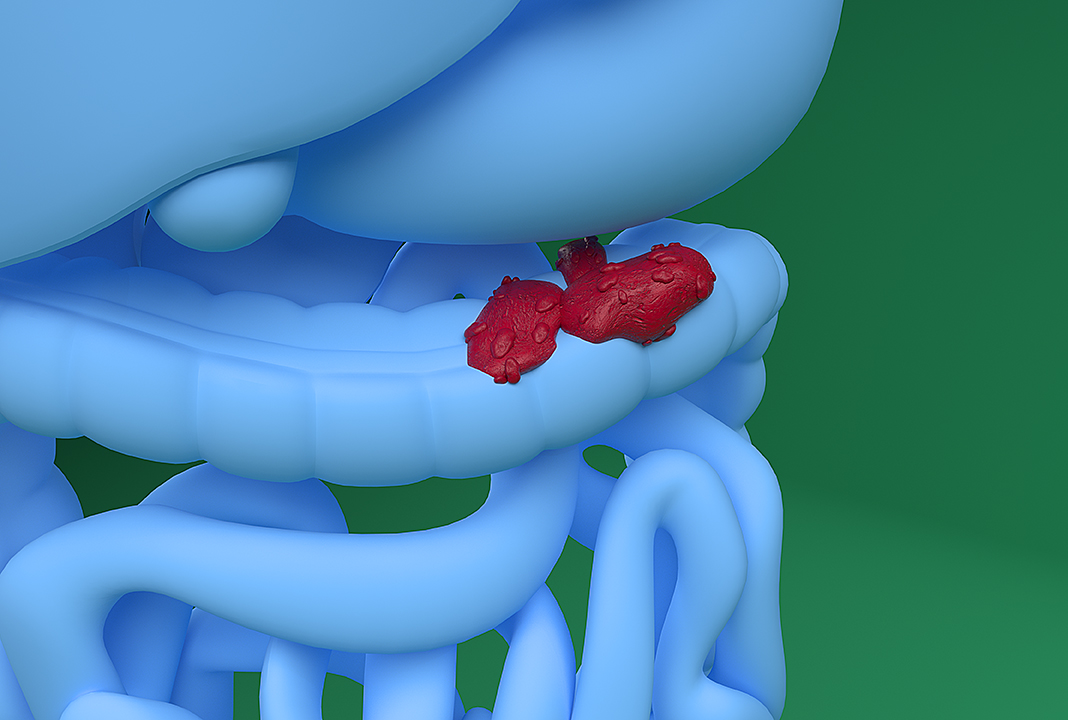Link Found Between Ultra-Processed Foods and Colorectal Cancer

The occasional drive-thru meal probably won't hurt you. A diet high in those kinds of ultra-processed foods, though, is a different story.
Too many highly manipulated goodies might increase your risk of colorectal cancer—among other serious health conditions—according to a 2022 study published in the journal BMJ.
The study found men whose diet was high in ultra-processed foods (think chips, candy, ice cream and soda) were almost 30 percent more likely to develop colorectal cancer than those who ate few or no ultra-processed products.
What is colorectal cancer?
Colorectal cancer is a cancer of the colon (large intestine) and rectum. You'll hear it called colon cancer or rectal cancer depending on where it is located. Colorectal cancer is the second-leading cause of cancer deaths worldwide and the third-leading cause of cancer deaths in both men and women in the United States, according to the American Society of Clinical Oncology.
The organization estimates about 151,000 adults in the U.S. will be diagnosed with the disease in 2022.
The incidence of colorectal cancer in people younger than 45 has been rising since the mid-1990s. The reason is unclear, but many experts say diet could be a factor.
What are ultra-processed foods?
Most of the foods you find in a grocery store are processed. According to the International Food Information Council, processing is "any deliberate change in a food that occurs before it's available for us to eat." This process includes heating and pasteurizing.
Processing in and of itself isn't always bad; it can be necessary for health and safety. The problem lies in foods that are significantly altered or engineered entirely.
Carlos A. Monteiro, a Brazilian researcher, initially coined the term "ultra-processed foods" in 2009. He and a team of fellow researchers developed a classification system, NOVA, to indicate different levels of processing.
According to the guidelines, unprocessed or minimally processed foods include items such as fresh produce and eggs. Processed foods usually have two or three ingredients and include goods like freshly made bread or canned fruit in syrup. Ultra-processed foods are "industrial formulations" with five or more ingredients, most or all of which are made in a lab or extracted from food.
Most ultra-processed foods contain added ingredients such as salt, fat, starches, sugar, artificial colors, flavors, preservatives or stabilizers. Examples include soft drinks, sports drinks, breakfast cereals, packaged sweets, hot dogs, cold cuts, fast food, frozen meals, instant soups, preprepared meals like pizza and fish sticks, and mass-produced ice cream.
The average American adult gets about 57 percent of their daily calories from ultra-processed products, according to a New York University study.
What research says about ultra-processed food
In the 2022 BMJ study mentioned previously, researchers examined data from three large prospective cohort studies in the U.S., with a total of 46,341 male and 159,907 female participants, including 3,216 colorectal cancer patients. The researchers found men who ate the most ultra-processed foods overall were 29 percent more likely to develop colorectal cancer than those who ate the least ultra-processed food.
They did not find the same association in women. However, researchers did find that specific types of ultra-processed products were associated with increased colorectal cancer risk for both men and women. These foods include processed meat, poultry and seafood products; sugar-sweetened beverages; and ready-to-eat and heat-mixed foods.
The study authors noted their findings are observational and do not indicate that ultra-processed foods cause cancer. More research is needed. But their results support previous research in establishing a clear link between diet and disease. Previous studies have connected ultra-processed foods to an increased risk of obesity, diabetes and high blood pressure.
Another study published in BMJ, this one in 2018, found an association between ultra-processed foods and overall cancer risk; once again, an association, not causation.
Why ultra-processed foods are linked to cancer
Processed meat is a "very established risk factor for colorectal cancer," said Lu Wang, a postdoctoral research fellow at Tufts University and one of the 2022 study's lead authors. Red meat, in particular, is strongly associated with adverse health outcomes, Wang said. And sodium nitrate, a preservative commonly found in processed meats, might contribute to the formation of carcinogens, such as nitrosamines, during processing.
Wang and her colleagues wrote that additional carcinogens might develop during heat treatment or transfer from packaging to food.
"The World Health Organization categorizes processed meats in the same category as cigarettes and asbestos," said Peter Lee, M.D., an oncologist with Arizona Oncology. He added that experts have hypothesized heme iron in red meat can lead to carcinogenesis. Heme iron is found only in animal flesh.
Another potential reason for the association between ultra-processed foods and colorectal cancer is that added sweeteners, emulsifiers, oils/fats and refined starch can alter the gut microbiota—the microorganism communities—and contribute to inflammation, Wang and her colleagues wrote.
In a healthy gut, beneficial bacteria help to metabolize food, produce nutrients and support immune system function, said Liudmila Schafer, M.D., a gastrointestinal medical oncologist in Kansas City, Missouri. But a preponderance of ultra-processed foods can render these microorganisms less effective, making it easier for microbial invaders to infiltrate the colon lining, which could lead to cancer.
Wang and fellow researchers also noted that diets high in ultra-processed foods tend to be nutritionally sparse. They lack bioactive compounds such as calcium, fiber and vitamin D, which provide protective benefits against colorectal cancer and other diseases. If people don't supplement the necessary compounds and nutrients, their health can suffer.
'The World Health Organization categorizes processed meats in the same category as cigarettes and asbestos.'
Estrogen provides some protective effects, and those, combined with the nutrient profiles of specific types of processed foods, could be part of the reason researchers didn't find the same associations in men and women, Wang explained.
Some ultra-processed foods are more unhealthy than others, and men and women might be more likely to consume different products. Ultra-processed sweetened yogurt, for instance, is high in sugar but also high in calcium.
"It might be some of the protective ingredients among ultra-processed foods counteract the adverse effects of others," Wang said, adding more research is needed to confirm this possibility.
In addition to routine colorectal cancer screenings, Wang, Schafer and Lee recommended people limit or avoid ultra-processed foods to ensure the nutritional quality of their meals.
"These foods aren't just related to colorectal cancer, but also many other adverse health outcomes," Wang said.
Instead, they suggested healthy eating of predominantly whole, unprocessed or minimally processed foods. It's a good idea to exercise regularly, maintain a healthy body composition, read nutrition facts and ingredient list labels, and quit or avoid tobacco as well.
"It's a combination of factors. Just eating right isn't enough," said Schafer, adding that a "360-degree view" is the best way to approach health.


















